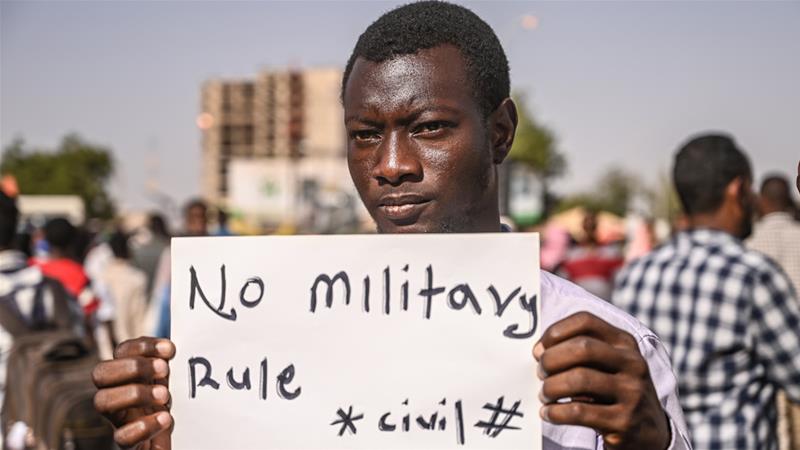Alwaght- Sudanese protesters called for continued civil disobedience and a general strike after the country's military rulers and protest leaders have failed to reach an agreement on a joint civilian-military council to rule the African nation.
The key protest group in Sudan called for the defiant measures on Monday after talks with current military rulers — functioning as the Transitional Military Council (TMC) — earlier in the day failed to provide any breakthrough on the establishment of a joint transitional council.
While TMC spokesman Shams El Din Kabbashi described the Monday talks as positive and claimed the two sides had agreed to clear certain sites occupied by protesters, the civilian-led Sudanese Professionals Association (SPA) denied agreeing to end the acts of civil disobedience.
Kabbashi said that during the negotiations, the SPA had agreed to open some roads, a railway line, and two bridges that lead to or pass near the military headquarters in the capital, Khartoum.
The SPA said no such agreement had been made. “This is counter to reality and negates any agreement with the military council, and we affirm that we are maintaining our sit-in, and everything that the [TMC] spokesman said is incorrect,” the SPA said in a statement later on Monday.
The protest movement further called for a general strike and civil disobedience through the holy month of Ramadan — beginning in early May — and the Eid holidays that follow.
“The military council is a copycat of the toppled regime. The army is trying to disperse the sit-in by removing the barricades,” added the SPA statement, in reference to the regime of long-time president Omar al-Bashir, which was toppled on April 11. “We are calling on our people to come immediately to the sit-in area. We are calling on the revolutionaries to protect the barricades and rebuild them.”
The TMC spokesman told reporters after the Monday talks that “the military council has presented its vision for a 10-member joint council, with seven military representatives and three civilians.” He said the other side “presented its vision of a 15-member joint council, with eight civilians and seven military representatives.”
Khabbashi also said the talks would resume on Tuesday.
A joint council, if agreed, would replace the existing military council that took power after the army ousted Bashir amid popular protests against his rule.
Like Bashir, the TMC is backed by despotic Arab states in the Persian Gulf such as Saudi Arabia and the United Arab Emirates (UAE).
The formation of a joint council would further pave the way for a civilian administration as demanded by the protesters.
The military council says it has assumed power for a two-year transitional period but has been negotiating to form a partially-civilian body amid continuing protests. Many of the protesters want all of the generals out now.



























